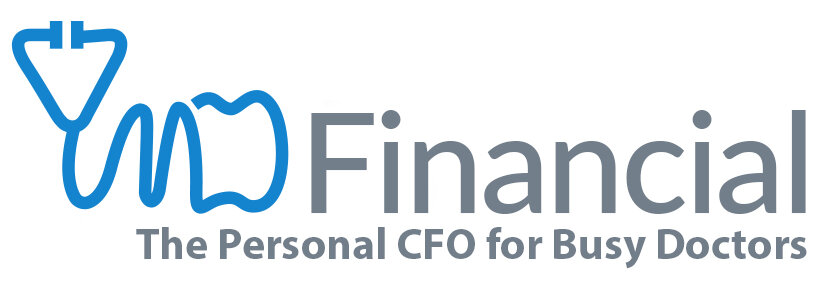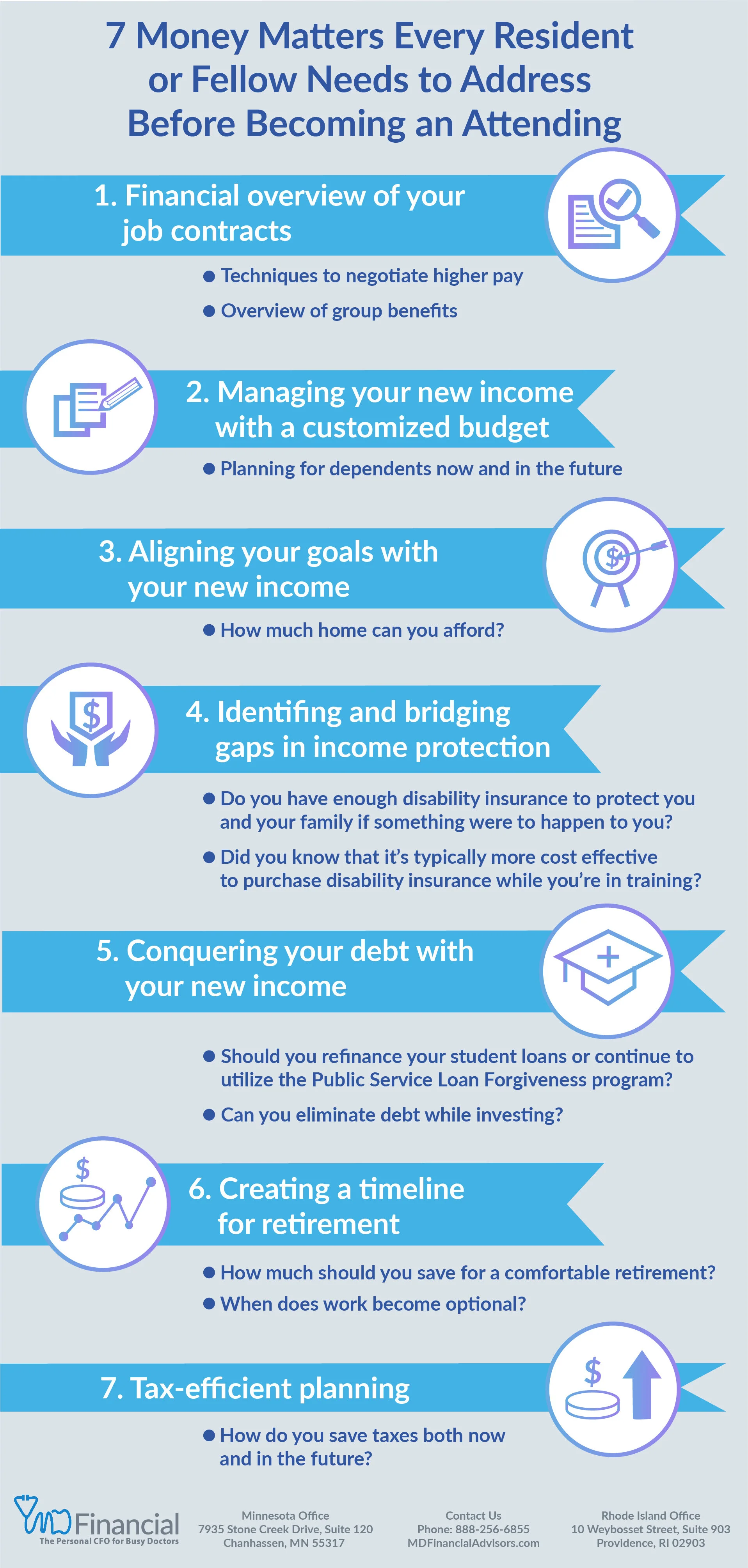Graduation is just around the corner for many residents and fellows. Over the many years we’ve been helping doctors, we have identified 7 key points they should consider when transitioning to an attending position. These crucial points will protect their financial goals now and in the future. Today we will discuss these steps, and why they are so important.
Financial Review of Job Contracts
How do the offered salaries and benefits compare?
What is a common salary for your specialty in your location? Websites like Salary.com and Glassdoor.com can help you find the average salary for your field and location.
Some benefits are more important than others. How do you know which is a better deal and which to negotiate? Bonuses, base pay, and vacation pay are all great benefits that can be negotiated.
How does the location of the job align with your long-term goals? Make sure that there is room for growth or partnership opportunities at your job.
If it’s a private institution, will your student loan payments still count towards your(PSLF)?
New Goals Should Match New Income
With a higher income comes higher taxes.
One big mistake we see from newly attending doctors is becoming “house-poor” right out of training.
Can you afford that car/boat/vacation home you’ve been dreaming of?
Are you hoping to start a family soon?
Have you already started a family and want to increase your savings into your children’s education accounts?
New Income = New Budget
Let’s work on allocating your new income to achieve your goals!
Upgrading Income Protection
Do you have enough disability insurance to protect you and your family if you were too sick or injured to work?
Although many of our clients think that they are not going to need disability insurance, statistically a doctor is 5x more likely to get too sick to work than they are to die.
It’s typically more cost effective to purchase disability insurance while you’re in training or shortly after you’ve graduated. Some carriers have coverage options up to six months after completing residency.
New or Updated Debt Plan
Should you refinance your student loans or continue to utilize the PSLF program?
Can you eliminate debt while investing? This strategy is best, as you want to get as many years as you can of compound interest.
If you are carrying outstanding credit card debt we want to get this paid off as soon as possible.
Retirement Timeline
In order to ensure a comfortable retirement, we need to start planning as soon as possible.
How much should you save for a comfortable retirement?
When do you want work to become optional?
You’ve likely gotten a large income increase and have changed tax brackets; so we want to make sure your investments are still working for you.
How can you save taxes both now and in the future? All attending doctors need to consider “the tax triangle” when navigating this new income level.
Best advice for the first few years of attending:
Live like a resident! This gives you time to build up your emergency fund and get a good handle on your finances.
Decide now that you will always live on less than you make! Start with a goal of maximizing your 401k/403b at work, and then start investing at least 10-15% of your gross income every month.
We know it’s a busy time for younger doctors and want to help lower that stress. Let’s use this time to put together an “after graduation” budget and plan ahead for your big expenses—make sure you are setting enough aside for savings/investments.
Listen on Apple Podcast, Google Podcast or Spotify
CONTACT US
1-888-256-6855
Remember that you can send us any questions or potential topics at: Info@MDFinancialAdvisors.com
Katherine Vessenes, JD, CFP®, is the founder and CEO of MD Financial Advisors who serve 500 doctors from Hawaii to Cape Cod. An award-winning Financial Advisor, Attorney, Certified Financial Planner®, author and speaker, she is devoted to bringing ethical advice to physicians and dentists. She can be reached at Katherine@mdfinancialadvisors.com.

![7 Things Doctors Should Know When Transitioning to an Attending [Podcast]](https://images.squarespace-cdn.com/content/v1/561feb4ee4b0de0eb30d6d3c/1621435965742-57Q385FQXJ4M2A1OI0N6/clay-banks-cEzMOp5FtV4-unsplash.jpg)

